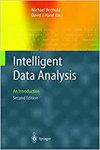RegRL-KG: Learning an L1 regularized reinforcement agent for keyphrase generation
IF 0.8
4区 计算机科学
Q4 COMPUTER SCIENCE, ARTIFICIAL INTELLIGENCE
引用次数: 0
Abstract
Keyphrase generation (KG) aims at condensing the content from the source text to the target concise phrases. Though many KG algorithms have been proposed, most of them are tailored into deep learning settings with various specially designed strategies and may fail in solving the bias exposure problem. Reinforcement Learning (RL), a class of control optimization techniques, are well suited to compensate for some of the limitations of deep learning methods. Nevertheless, RL methods typically suffer from four core difficulties in keyphrase generation: environment interaction and effective exploration, complex action control, reward design, and task-specific obstacle. To tackle this difficult but significant task, we present RegRL-KG, including actor-critic based-reinforcement learning control and L1 policy regularization under the first principle of minimizing the maximum likelihood estimation (MLE) criterion by a sequence-to-sequence (Seq2Seq) deep learnining model, for efficient keyphrase generation. The agent utilizes an actor-critic network to control the generated probability distribution and employs L1 policy regularization to solve the bias exposure problem. Extensive experiments show that our method brings improvement in terms of the evaluation metrics on five scientific article benchmark datasets.RegRL-KG:学习用于关键字生成的L1正则化强化代理
关键词生成(KG)的目的是将源文本的内容浓缩为目标简洁的短语。虽然已经提出了许多KG算法,但大多数算法都是针对深度学习环境量身定制的,具有各种专门设计的策略,可能无法解决偏差暴露问题。强化学习(RL)是一类控制优化技术,非常适合弥补深度学习方法的一些局限性。然而,强化学习方法在关键词生成中通常面临四个核心困难:环境交互和有效探索、复杂动作控制、奖励设计和任务特定障碍。为了解决这个困难但重要的任务,我们提出了RegRL-KG,包括基于actor-critic的强化学习控制和L1策略正则化,通过序列到序列(Seq2Seq)深度学习模型在最小化最大似然估计(MLE)标准的第一原则下,有效地生成关键字。agent利用actor-critic网络来控制生成的概率分布,并采用L1策略正则化来解决偏差暴露问题。大量的实验表明,我们的方法在5个科学文章基准数据集的评价指标方面有所改善。
本文章由计算机程序翻译,如有差异,请以英文原文为准。
求助全文
约1分钟内获得全文
求助全文
来源期刊

Intelligent Data Analysis
工程技术-计算机:人工智能
CiteScore
2.20
自引率
5.90%
发文量
85
审稿时长
3.3 months
期刊介绍:
Intelligent Data Analysis provides a forum for the examination of issues related to the research and applications of Artificial Intelligence techniques in data analysis across a variety of disciplines. These techniques include (but are not limited to): all areas of data visualization, data pre-processing (fusion, editing, transformation, filtering, sampling), data engineering, database mining techniques, tools and applications, use of domain knowledge in data analysis, big data applications, evolutionary algorithms, machine learning, neural nets, fuzzy logic, statistical pattern recognition, knowledge filtering, and post-processing. In particular, papers are preferred that discuss development of new AI related data analysis architectures, methodologies, and techniques and their applications to various domains.
 求助内容:
求助内容: 应助结果提醒方式:
应助结果提醒方式:


